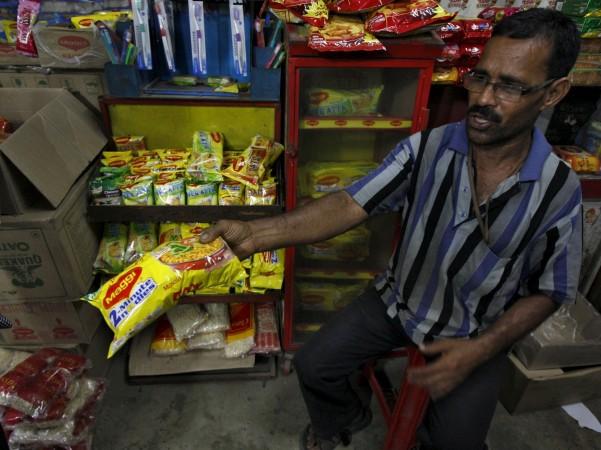
Nestle India is reportedly using 10,000 trucks to carry over 27,000 tonnes of recalled Maggi noodles to the incineration centres. Destruction of such a huge amount of controversial noodles recalled from over 3.5 million retailers is expected to last for at least 40 days.
"The entire recall process is huge and complex," Luca Fichera, executive vice-president (supply chain), Nestle India, told Livemint.
On 5 June, the food regulator mandated Nestle India to recall all the available stock in the market following confirmation of harmful levels of lead in the 'two-minute noodles'.
To carry out one of the biggest recalls in it's over 100 years history, Nestle India has engaged about 1,600 sales staff and nearly 12,000 people in its distribution network.
The company is estimated to recall 27,420 tonnes of Maggi noodles, including about 1,422 tonnes of noodles that are at its five factories in the country. Currently, the factories have halted the production of Maggi noodles.
"We don't have enough space available to keep all. We have already taken 12 storage spaces additionally to keep the recalled noodles," said Ashish Pande, head of supply chain operations (India), Nestle India.
From 9-13 June, Nestle India is reported to have destroyed 169 tonnes of Maggi noodles at three cement plants. The process involves crushing of noodles, adding the fuel and burning the mix in incinerators. The company is planning to rope in more cement plants to speed up the destruction process.
"Once in full swing, all five or six cement plans together will be able to destroy about 700 tonnes of noodles every day," Fichera said.
Meanwhile, the company pegs the loss in recalling Maggi noodles at ₹320 crore.
"That's just the cost of the material. There are costs for logistics, packaging, transport, handling and storage. And, Nestle India is also paying the cement plants for destruction of the noodles. Overall, it's a huge complex exercise which we have never done before at Nestle India," Fichera added.
















